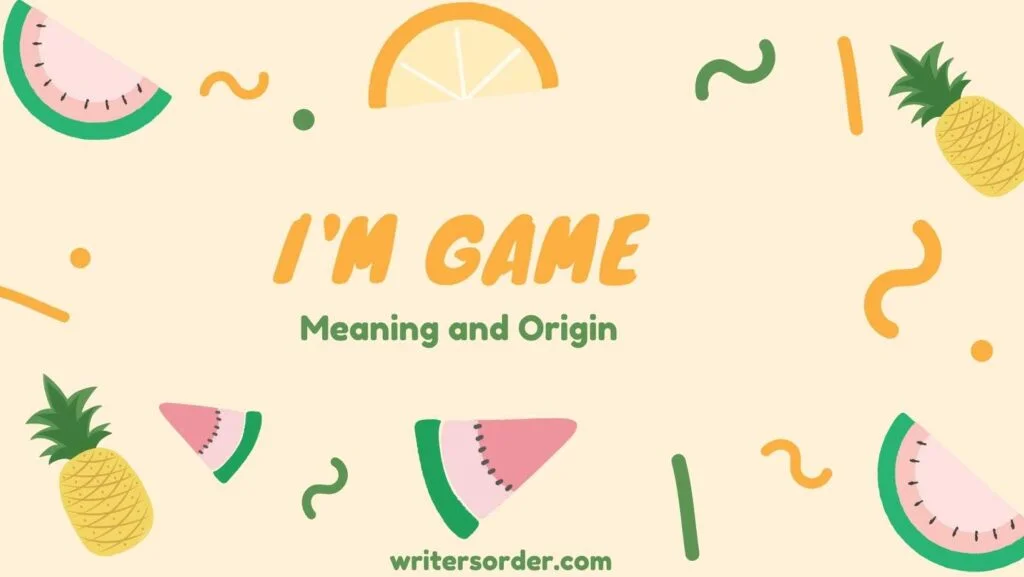You have to be the change to bring the change.

Meaning and Origin of the Phrase “I’m Game”
Our content is reader-supported. We may earn a commission if you make a purchase through one of our links.
As unfortunate as it is, these days, several people are being played or enthusiastically playing others. But that topic is for another day. Today, I’ll help you understand and learn about one of the commonly used idioms in the English language today: I’m Game.
What is the Meaning of ‘I’m Game’?
The phrase ‘I’m Game’ is an idiom used to indicate the speaker’s willingness or interest in whatever that has been proposed or suggested. It could be a great number of things, from an exciting activity, such as a party, to a more serious affair, for instance, a study session. It is similar to the phrase “I’m up for it!” Again, this phrase is showing interest or enthusiasm to take part in a particular task or activity.
Etymology and History
So, how did this phrase come to mean ‘count me in?’ Or how did ‘who’s game?’ become ‘who’s in?’ Did the English experts simply like playing games, or was it something else? Let’s find out!
The Origin
The word ‘game,’ as an adjective, arises from the 16th century. It originates from an ancient English word ‘gamen,’ meaning joy or pleasure. A popular saying depicting its history is:
“God loved he best with all his whole hearte. At alle times, though him gamed or smarte.”
-Chaucer
Interestingly, some believe the term ‘gaming’ is a modification of another somewhat similar term, ‘gambling.’ The former was put forward by the modern corporates ruling the casino industry during the older centuries. They suggested that ‘gaming’ was a more globally acceptable and sophisticated word.
Gambling, on the other hand, was viewed and perhaps still is considered a negative word, prompting deviousness or cunning thoughts in the minds of a significant number of people. The term ‘gambling’ is believed to be driven from the Anglo-Saxon word, gamenian, defined as ‘to sport or play.’
Usage
Now that we understand what the phrase means, it is time to use it in some examples, so there is no doubt left.
Here’s a conversation between two friends talking about a party they intend to go to. One friend will ask the other if she’s willing to go, and she will show her interest by responding with I’m Game:
Example 1
Robert: Hey, Lisa! There is a party this week at the nearby beach. Are you game?
Lisa: Game? What do you mean? Is it a games-party?
Robert: Oh, I’m sorry! I assumed you would know. I’m game is a common expression used to describe willingness for a particular activity or task. It does not necessarily mean sports gaming. If you are interested in anything fun or unusual, you say “I’m game” as yes.
Lisa: Oh, how interesting!
Robert: I think so too! So, do you want to go to the party?
Lisa: I’m game!
Example 2
Friend: Hey! Do you want to go see a movie?
You: Dude, yes, I’m game!
Example 3
Friend: Hey, do you want to study at my place tonight?
You: Yes! I’m game.
Example 4
Friend: Fancy going for a drink?
You: Sure, I’m game.
Example 5
Friend: I was thinking of going shopping. Do you want to come?
You: Yes, I’m game!



